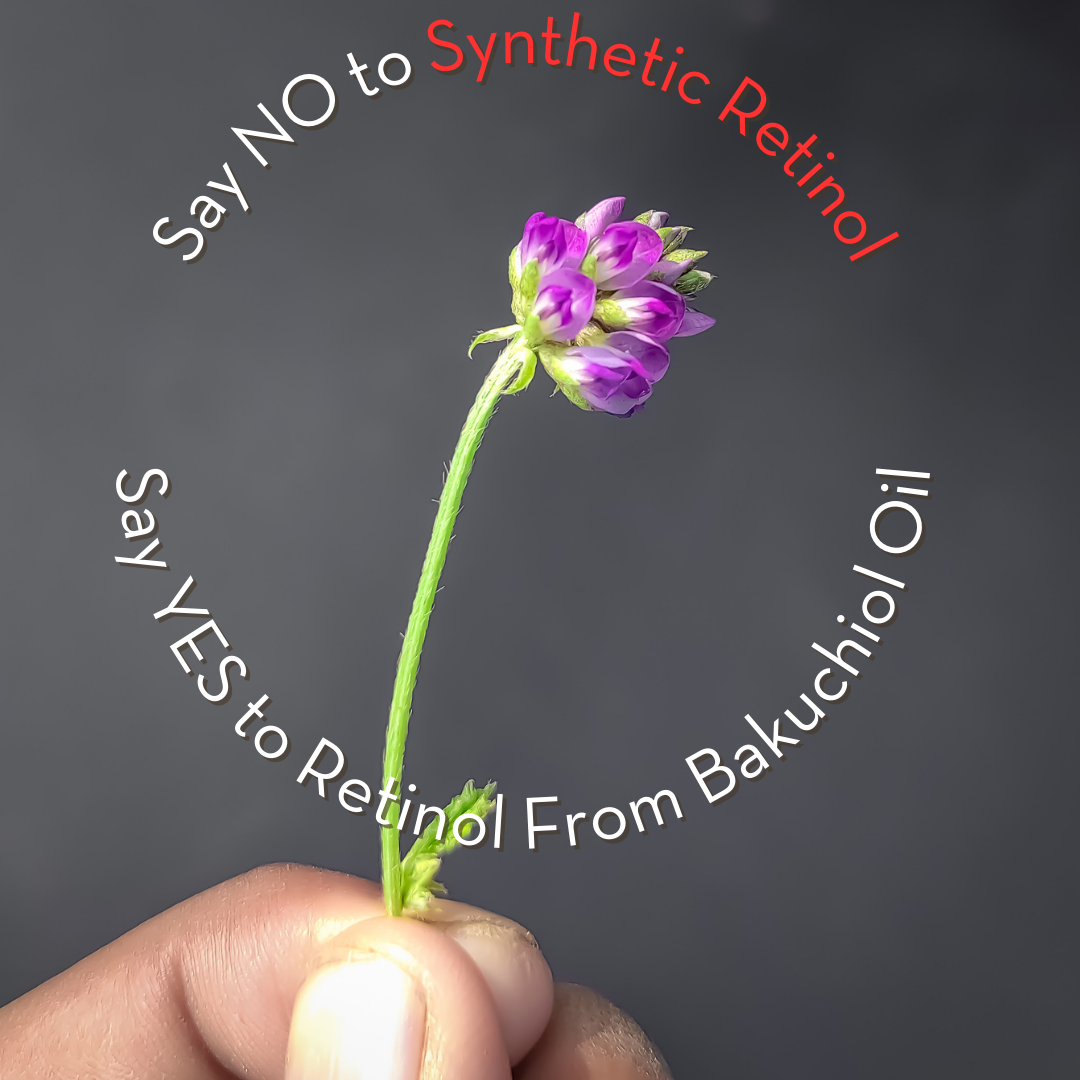What is Retinol?
Retinol, a type of retinoid and a derivative of vitamin A, is vastly distinguished in the skincare space. It promotes the skin's renewal process and increases collagen production, resulting in more youthful-looking skin. Known for its wrinkle-reducing and anti-aging properties, retinol is also effective in treating acne and improving skin texture and tone. Despite its clear benefits, there are defining drawbacks, such as skin irritation, redness, increased sun sensitivity & photosensitivity, and incompatibility with skin issues like eczema, rosacea, or extremely sensitive skin. Lastly, there are some concerns regarding its use during pregnancy and breastfeeding. Retinol, with over 70 years of research, is a widely used ingredient with clear pros and cons, but an alternative, soon to be named, may challenge its dominance.
We like Retinol, but we like Bakuchiol just a little more. Let's explain why.
Derived from the seeds and leaves of the Psoralea Corylifolia plant, Bakuchiol has been coined as the ‘natural retinol.’ While mimicking the skin-brightening and anti-aging effects of retinol, bakuchiol is gentle on the skin. Its list of benefits demonstrates its superiority, with impressive characteristics such as antioxidant properties, anti-inflammatory effects, the ability to stimulate cell turnover, no photosensitivity issues (it does not increase the skin's sensitivity to sunlight), and antibacterial effects that support acne-prone skin. This makes it a superhero for almost all skin types, offering the benefits of retinol without the irritation.
Comparing the Two:
- Origin: Retinol is synthetic, while bakuchiol is plant-based.
- Mechanism: Both accelerate cell turnover, but bakuchiol does so more gently.
- Skin Suitability: Retinol can be harsh on sensitive skin; bakuchiol is generally more tolerable.
- Antioxidative Abilities: Bakuchiol was found to be more effective in reacting with free radicals than retinol, according to electron spin resonance studies.
- Side Effects: Retinol may cause redness and peeling, particularly when first used. Bakuchiol is less likely to cause these issues.
- Acne-Prone Skin: While retinol is effective for severe acne due to its potent effects, bakuchiol is an excellent option for those seeking a gentler everyday ingredient with fewer irritating side effects.
- Efficacy: Retinol has more research backing its effectiveness, especially for severe skin concerns. Bakuchiol, effective and supported by studies confirming its power, is still catching up in terms of major scientific evidence.
- Sensitive Skin: Bakuchiol might be your best bet for sensitive skin or if you're new to skin treatments. Its gentle nature allows you to enjoy the benefits without the usual concerns associated with retinol.
- Natural Skincare Lovers: Bakuchiol is a clear winner for those who prefer natural skincare. It offers a plant-based, less irritating route to radiant skin.
- Day Time Use: Bakuchiol's lower sun-sensitivity profile makes it a safer choice, especially since moderate sun exposure should always be part of a healthy lifestyle. Retinol can make your skin more susceptible to UV rays and may degrade or become less effective when exposed to sunlight.
HEFR LABS Tallow Face Moisturizer & Infusion of Bakuchiol
Bakuchiol resonates with the idea that powerful compounds in their purest forms can outperform synthetic ingredients. With its high antioxidative authority, anti-inflammatory properties, and noticeable impact on skin aging, bakuchiol was a clear choice for infusion into HEFR LABS' Tallow Face Moisturizer. Comprising just three ingredients – tallow with its balanced fatty acid profile, jojoba oil with its non-comedogenic & powerful emollient properties, and bakuchiol with its advanced antioxidant and cellular promotion capabilities – our formulation makes the dream team moisturizer. Discover the radiant difference in skin health with our moisturizer.
Souces

